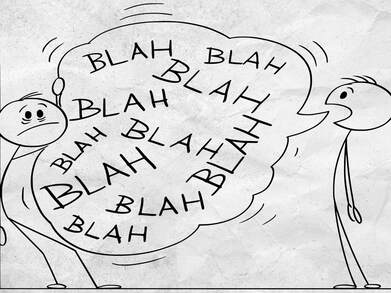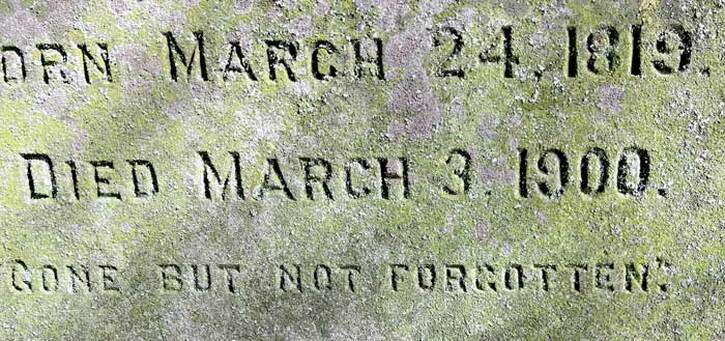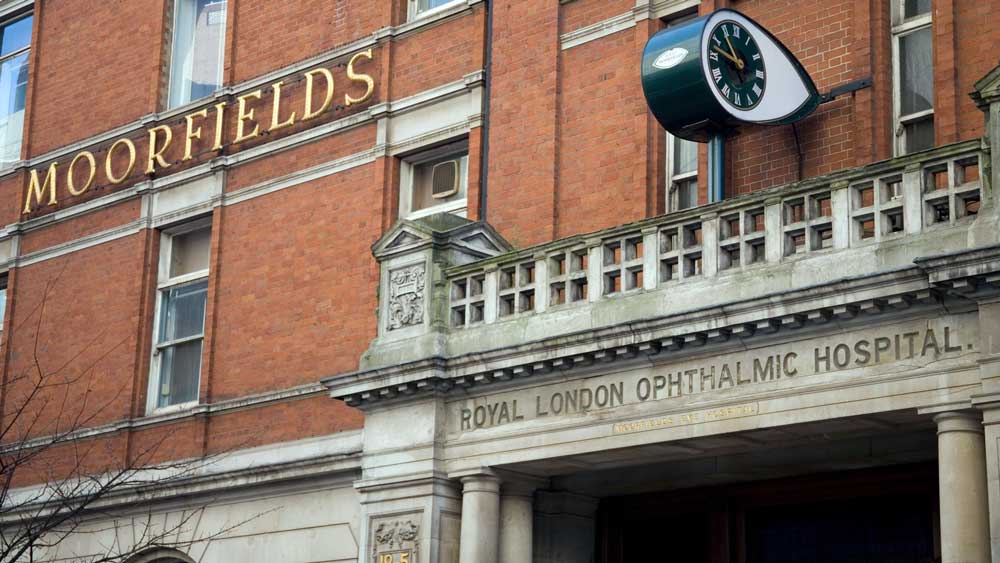
Motto for Private Office and Cabinet Room: "Quiet, calm deliberation disentangles every knot - HM"
|
|
 Harold Macmillan, 1st Earl of Stockton, (1894–1986) British statesman and Conservative politician who was Prime Minister of the United Kingdom from 1957 to 1963. He was nicknamed "Supermac" and was known for his pragmatism, wit, and unflappability. Here is his motto when at Number 10. Motto for Private Office and Cabinet Room: "Quiet, calm deliberation disentangles every knot - HM"
0 Comments
I have been thinking about my maternal grandfather John William Burke. He was a pit worker in Yorkshire, a ‘deputy’, a kind of foreman. He worked at Maltby Main Colliery, one of the UK’s deep mines, noted for a major disaster on 28 July 1923 which killed 27 men and injured many more, my grandfather among them. I am told it affected his lungs. Eventually the condition shortened his life. Maltby Main closed for good in 2013. My grandfather is listed as one of the witnesses at the investigation by Sir Thomas Mottram (H M Chief Inspector of Mines) which resulted in the report “On the Causes of and Circumstances attending the Explosion which occurred at the Maltby Main Colliery, Yorkshire, On The 28th July, 1923”.
I never knew him, and wish I had. John William Burke 1 March 1890 (born Shirebrook, Derbyshire) and died 24 June 1954 at Harworth (then Yorkshire, later Nottinghamshire). In my early life (I was born two years after his death) I was surrounded by miners and by the North Nottinghamshire and South Yorkshire collieries. My recent research has reminded me of the terrible working lives miners endured, and the high risks to which they were routinely exposed. As a boy I was unaware of the demanding nature of their work. All I recall is that the miners living near us appeared to enjoy a good standard of living. This (I now see) reflected both the risks of the job and the power of their union - the NUM. Now, their existence and power are things of the past. In late 2012 the 540 employees at Maltby Main were given redundancy notices and its above-ground structures demolished in 2014. In our more aware age coal is a dirty fuel. Yet it made very many things possible. And those who worked down the mines deserve to be remembered.  Woodbrooke closed at the end of October 2023. All down to cost, apparently. This residential Quaker centre was established by - and in the former home of - George Cadbury, in 1903. I see that an invitation had been made for those who knew the place to send in memories, though I saw this only after the closing date. In 1979 I spent almost one term at Woodbrooke. I was a member of Sheffield (Hartshead) Meeting and 23 years old. I'd had a miserable (and unsuccesful) time at Worksop's Valley Comprehensive School, followed by six years writing benefit Giro cheques (anyone remember those?) in the DHSS. Then an unexpected possibility opened up, to read for a social science degree and a social work qualification at university. Sheffield Friends (in particular Irene Gay and Maud Bruce) realised that I could do with some help in making the tranisition: they asked the meeting to fund me to spend time at Woodbrooke. I can never thank them enough. Woodbrooke then operated a term-time community. I attended lectures and tutorials, and met people like tutors John Punshon and Parker Palmer (the latter a visiting tutor from the USA). The Priestman's were the wardens. All told, it was a wonderful place and atmosphere, and without the heavier self-consciousness of being Quaker that seems to have overtaken British Quakers in the decades since. Alcohol was banned: a requirement imposed by George Cadbury. But that did not stop students slinking off in groups to bedrooms after super to open a few bottles. And it was at Woodbrooke that I was introduced by a member of The Wee Frees - a distinct Presbyterian denomination in Scotland - to a Rusty Nail. It comprises equal measures of Scotch and Drambuie. I have occasionally drunk it ever since. At that time, Woodbrooke (and the wider Society of Friends) would reference some of the then recent shapers of Quaker thought, including Maurice Creasey and Hugh Doncaster, names now largely forgotten. In that glorious short but rich time for me, the days were full of thinking, discussion and conversation; trips out with other students, the odd crush, consumption of Quaker and Christian history and a profound sese of having been given a second chance.  Not long after I began social work it was common to hold generic caseloads comprising children and family cases, older persons, mental health clients and various supervision order cases. I liked the variety, though it was soon to be replaced by specialism as part of the response to greater concern about child protection. Older persons' cases were often for assessment, followed by various services such as Home Help, Day Care or respite or residential care. An assessment would cover a range of psycho-medico-social aspects. One aspect to address was continence, or rather incontinence, and whether it was single or double. I know, exciting stuff. Many years later, after I had opted for specialist children and families work and had no continuing professional cause to consider incontinence of any kind, the term suddenly found a new use in my thinking. I have often reflected on the endless volume of words some people spout, and in a flash I saw this as a new and pernicious form of incontinence. 'Incontinent of speech' became an apt (but private) description for various people I encountered. They seemed unable to shut up, dribbled uncontrollably, and mostly inept in the ability to listen. I later came across the wonderful term, to 'overtalk' and posted about that here. Some people link the overtalkers - those who are 'incontinent of speech' - with the arrival of social media platforms. For sure these provide additional avenues for endless gas-bagging, but the condition was already at epidemic levels. What is it that makes a substantial proportion of the human race gas on so much and listen so little? They have as little control over what constantly spouts from their vocal chords as the traditionally incontinent do over their sphincters. IN WESTMINSTER ABBEY - John Betjeman This is, of course, a satirical composition in which John Betjeman imagines an upper class woman attending Evening Prayer in Westminster Abbey during WWII. It is clever, and uncomfortably true. True not only of the class and disposition represented, but of the distorting mess so many of us make not only of our prayers but also our ideologies and professed attitudes. It is a lifelong process of interrogating ourselves before we begin to see, then transform, our often self-centred positions. Surely one of the purposes of prayer. Click Read More Oh, you thirsty of every tribe
Get your ticket for an aeroplane ride Jesus our Saviour is coming to reign And take you to glory in his aeroplane I did not know of The Watersons, or of this fab song and sentiment. "....in the 1930s, [you'd hear] what they call a “brush arbour hymn” in the backwoods districts of America. Itinerant evangelists of a kind too modest to use a big tent might select a clearing near a spring and get helpers to build a “tabernickle” consisting of a framework of poles roofed over with leafy branches and lit by kerosene or petrol lamps. Advertisements seen at mountain filling stations as recently as 1976 say: “Please come and bring a carload of unsaved”... What gets sung is a mixture of standard hymns filled out with punchy choruses and more or less local compositions of touching naivety. Hymns using symbols from the world of mechanical transport have a venerable enough lineage. The long-lasting favourite Life's Railway to Heaven was widespread on broadsides in both USA and England in the mid-nineteenth century." Listen (above), and follow the lyrics (below). Have your Boarding Cards ready. And a happy Christmas to us all. Oh, one of these days around twelve o'clock The whole wide world will reel and rock The sinner will tremble and cry for pain And the Lord will come in his aeroplane Chorus (after each verse): Oh, you thirsty of every tribe Get your ticket for an aeroplane ride Jesus our Saviour is coming to reign And take you to glory in his aeroplane Oh, talk of rides in automobiles Talk of fast times in motor wheels We'll break all records as we upwards fly For an aeroplane joy ride in the sky You must get ready if you take this ride Leave all your sins and humble your pride Furnish a lamp both bright and clean And a vessel of oil to run the machine When our journey's over and we all sit down At the marriage supper with a robe and crown We'll blend our voices with a heavenly throng And praise our Saviour as the years roll on "Anthropathological enmeshment the common experience of (i) finding oneself in a difficult, painful situation; (i) recognizing the high costs, perhaps impossibility, of extrication, and (ji) experiencing a sense of impotence. An example might be that you are stressed by working conditions but are trapped by financial constraints and, even as you visualize an escape, such as downshifting, you recognize that such a move will simply enmesh you in a different set of difficulties.
Most of us are enmeshed in the conditions of capitalism but recognize that the alternatives of homelessness, voluntary austerity, communism or anarchism also have their unattractive aspects. Arguably, we are all systemically enmeshed: the whole world is faking it, and everyone is complicit in everyone else's frauds" (Miller, 2003, p. 120). Paradoxically, the ensuing sense of impotence may save us from worse anthropathological loops. Tomorrow is Remembrance Sunday in the UK. I shall call to mind the uncle after whom I am named, who was shot down over the Netherlands on 20 September 1943. I shall remember also the countless souls not known to me, who died as a result of human ambition and violence. Here is a telling voice: that of Jacob Bronowski. It is the concluding sequence of his 1973 BBC series The Ascent of Man. It is said that this scene was unscripted and unrehearsed by him. "The words just came to me" he was quoted as saying.  Today I visited one of my favourite silent places (see this post) and as usual found it empty, and so welcome and welcoming. Although it was around 1pm, I said the Evening Office, made easy by some app on my iPhone. The wonder of it all. Before entering I walked around the churchyard, reading such headstones as remained legible. I came across this one, and the text that clamoured for attention read "Gone but not forgotten". This is almost certainly no longer true. The person had been born in 1819 and had died in 1900. Remembered for a while, no doubt. But those doing the remembering - who knew the deceased - are themselves long dead. I read the inscription as a statement of hope and comfort, and of unexpressed fear. We shall all be 'forgotten'. I have long suspected that at the root of much human difficulty, evasion, maladaptation and anxiety is fear of our death and oblivion, our being forgotten. This is hardly ever faced (truly, hardly ever faced), and so we remain unaware of the cause but routinely suffer the consequences. Ernest Becker's The Denial of Death (1973) deals with this matter directly. It is a sobering but strangely liberating read. See the wiki summary here. Socrates advised that we practice dying (that is, face it, meditate upon it, live with its inevitability) in order to become morally serious (authentic) persons. "Human beings are mortal, and we know it. Our sense of vulnerability and mortality gives rise to a basic anxiety, even a terror, about our situation. So we devise all sorts of strategies to escape awareness of our mortality and vulnerability, as well as our anxious awareness of it. This psychological denial of death, Becker claims, is one of the most basic drives in individual behaviour, and is reflected throughout human culture. Indeed, one of the main functions of culture, according to Becker, is to help us successfully avoid awareness of our mortality. That suppression of awareness plays a crucial role in keeping people functioning – if we were constantly aware of our fragility, of the nothingness we are a split second away from at all times, we’d go nuts. And how does culture perform this crucial function? By making us feel certain that we, or realities we are part of, are permanent, invulnerable, eternal. And in Becker’s view, some of the personal and social consequences of this are disastrous." (Source: The Ernest Becker Foundation). Acquainting ourselves with the certainty of our death and our eventually being forgotten only enhances life. Its something we should practice.  To Clinic 12 (Retina), Moorfields Eye Hospital, London for the (roughly) biennial check on my right eye where a haemangioma, a vascular oddity, lurks. It was first discovered by the zealous students in the ophthalmology clinic of the university I attended, and when I moved to London in 1983 Moorfields took an interest. I have never needed treatment to it (‘we will leave it alone until it causes trouble’) and their interest was as much a teaching aid for their own students. I’ve been going for an astonishing 38 years. And today, I was discharged. Quite a rupture to a relationship if you ask me. And without warning. I was discombobulated only for a few seconds. I admire and value the NHS (concept and reality) and have no wish to tie up resources unnecessarily. Over the years, I have come to know the professors, though the students turn over quite quickly. Clinic 12 is in the basement of the building that dates from 1899, a warren of corridors that are hard enough to navigate with decent vision. Others have to be guided. Over the decades, I have seen improvement in medical photography and diagnostics (Fluorescein Angiography was the only one I found disagreeable). At the start of our relationship, photographs were hard copy. Now they are available on screen, and with remarkable depth, seconds after being taken. My abandonment was done in a kindly way, and they will see me again whenever necessary. Of course, it was no abandonment, just the proper use of resources and a decision based on reasoning. I’ll get over it. Thinking about this, I concluded that the relationship with Moorfields over these years has represented, in some way, being cared for (always the same lead medic), and that this stands in contrast to my experience of GP practices nowadays. Thanks Moorfields. It’s been great knowing you. Related post — The Eyes Have It |
|
|
(c) Hugh Valentine
|